“Blue pigment yipin 25kg” has been added to your cart. View cart
“Caprylic/Capric Acid” has been added to your cart. View cart
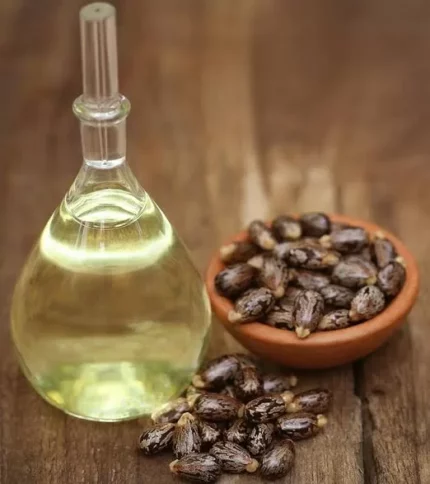
Castor Oil Food Grade
KSh0.01 Original price was: KSh0.01.KSh0.00Current price is: KSh0.00.

Hydrazine Food Grade
KSh0.01 Original price was: KSh0.01.KSh0.00Current price is: KSh0.00.
Glycerol Monostearate (GMS)
KSh0.01 Original price was: KSh0.01.KSh0.00Current price is: KSh0.00.
SKU:
ACS88931CHEM0
Categories: Emollients, Emulsifiers, Thickeners
Reviews (0)
Be the first to review “Glycerol Monostearate (GMS)” Cancel reply
Shipping & Delivery
Related products
Ammonium Lactate
Ammonium lactate is a combination of lactic acid and ammonium hydroxide. It's commonly used as a moisturizer to treat dry, scaly, itchy skin conditions, such as ichthyosis vulgaris and xerosis. The lactic acid component helps to exfoliate dead skin cells, while the ammonium hydroxide component helps to moisturize and soften the skin. It's available in various forms, including lotions and creams, and typically requires a doctor's prescription for use.
Avocado wax
Avocado wax, also known as avocado oil wax or Persea Gratissima (Avocado) Oil, is a natural wax derived from the fruit of the avocado tree (Persea americana). It is obtained by cold-pressing the flesh of the avocado fruit and then further refining the extracted oil to obtain a solid, waxy substance.
Avocado wax has a high melting point and a rich, creamy texture, which makes it an excellent ingredient for various cosmetic and personal care products. It is often used as a natural alternative to petroleum-based waxes or synthetic emollients.
The wax contains a combination of fatty acids, such as oleic acid, palmitic acid, and linoleic acid, which contribute to its emollient and moisturizing properties. Avocado wax forms a protective barrier on the skin, helping to retain moisture and prevent moisture loss. It is known for its nourishing, softening, and smoothing effects on the skin and hair.
In summary, avocado wax is a natural wax derived from avocado fruit, prized for its moisturizing, emollient, and protective properties, making it a valuable ingredient in various cosmetic and personal care products.
Candelilla Wax
Candelilla wax is a natural vegetable wax derived from the leaves of the candelilla shrub, scientifically known as Euphorbia cerifera. It is primarily produced in northern Mexico and the southwestern United States. Candelilla wax is obtained through a process that involves harvesting the leaves, grinding them into a powder, and then boiling the powder to extract the wax.
Candelilla wax is characterized by its yellowish-brown color and a hard, brittle texture. It is composed mainly of hydrocarbons, esters, and fatty acids. One of its key components is the hydrocarbon called cerotine, which gives the wax its unique properties. It has a melting point ranging from 68 to 73 degrees Celsius (154 to 163 degrees Fahrenheit).
This wax is widely used in various industries, including cosmetics, pharmaceuticals, food, and household products. In cosmetics, it is employed as a natural alternative to beeswax or petroleum-based waxes in the formulation of lip balms, lotions, creams, and other skincare products. Its emollient and protective properties help to provide a smooth texture, enhance product stability, and improve moisture retention.
Furthermore, candelilla wax finds applications in the food industry as a coating or glazing agent for candies, chewing gum, and other confectionery products. It is also utilized in the production of candles, polishes, adhesives, and coatings due to its excellent film-forming and water-repellent qualities.
Overall, candelilla wax is a versatile and sustainable natural wax with various desirable properties, making it a valuable ingredient in numerous commercial products.
Ceto Stearyl Alcohol (50:50) 25 kg bag
Glycerin 250 kg Drum Food Grade
Glycerin, also known as glycerol, is a colorless, odorless, viscous liquid that is sweet-tasting and non-toxic. It is a type of alcohol with three hydroxyl (OH) groups, and is commonly used in various industries such as pharmaceuticals, cosmetics, food, and personal care products. Glycerin has numerous applications, including as a solvent, humectant, emollient, and lubricant, among others. It can be derived from both plant and animal sources, and is also produced as a byproduct of soap and biodiesel manufacturing.
White oil 162kg
White oil is a highly refined, colorless, odorless, and tasteless mineral oil that is commonly used in a variety of industrial, cosmetic, and pharmaceutical applications. It is produced by refining crude oil to remove impurities, resulting in a pure and stable oil that is chemically inert and non-toxic. White oil is typically characterized by its high purity, low viscosity, and low volatility, which makes it an ideal choice for applications where cleanliness, stability, and safety are important. Some common uses of white oil include as a lubricant, a carrier oil for fragrances and flavors, a plasticizer in the manufacturing of plastics, and as an ingredient in personal care products such as lotions and creams.
Zinc stearate 25kg
Zinc stearate is an inorganic compound composed of zinc and stearic acid. It is a fine, white powder that is insoluble in water. Zinc stearate is primarily used as a lubricant, release agent, and stabilizer in various industries, including plastics, rubber, cosmetics, and pharmaceuticals. It has excellent hydrophobic properties, which make it effective in preventing the sticking or adhesion of materials during processing or manufacturing. Zinc stearate is also used as a thickening agent, emulsion stabilizer, and anti-caking agent in certain applications.

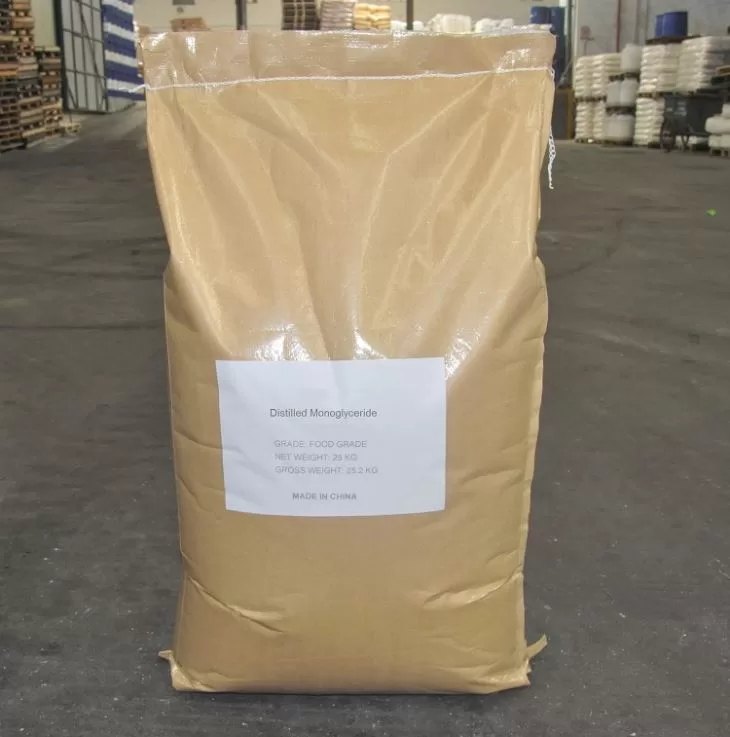
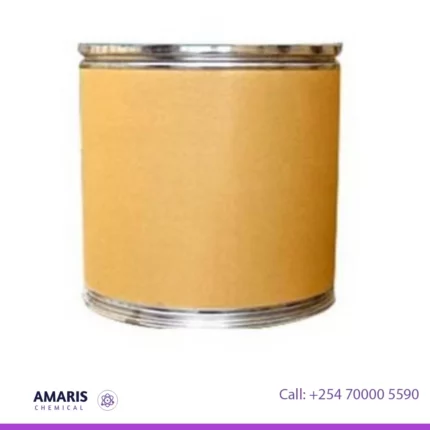
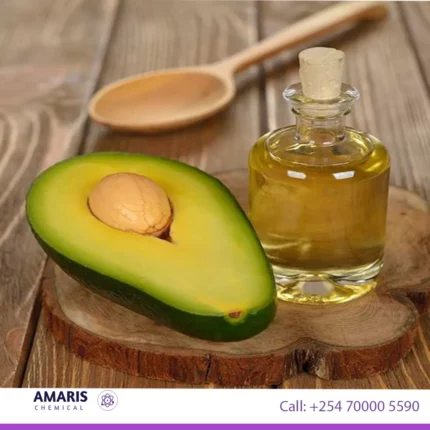
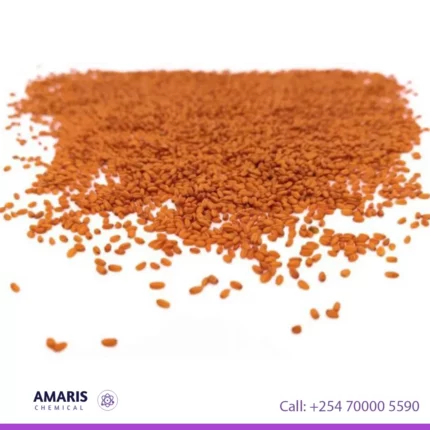
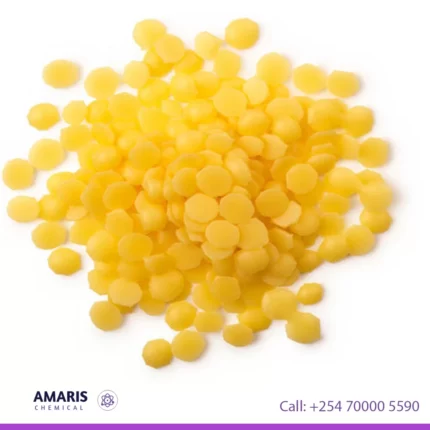
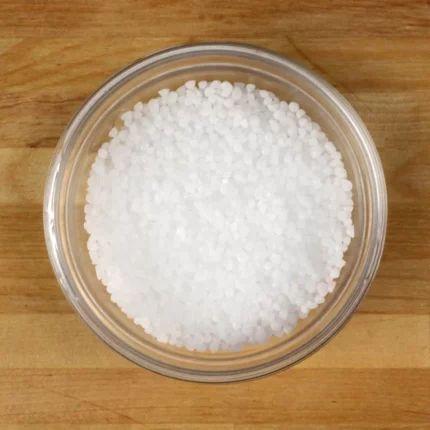
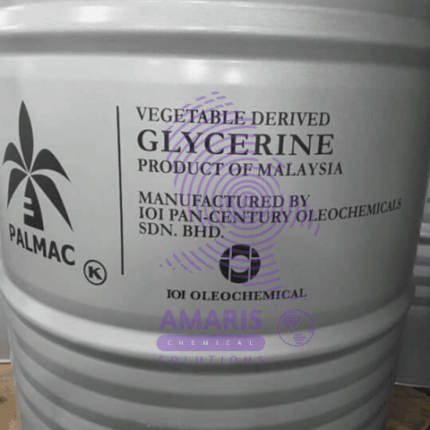
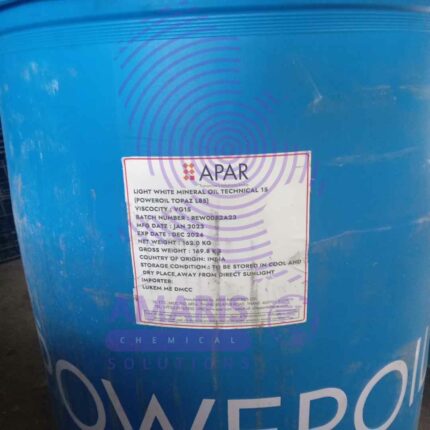
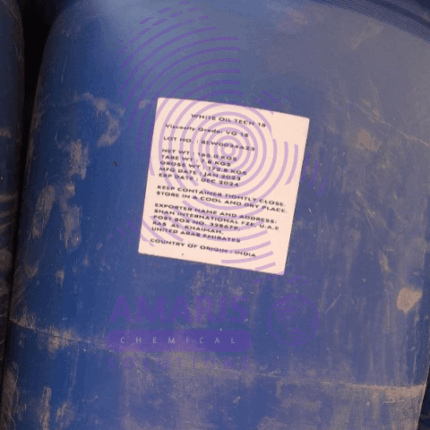
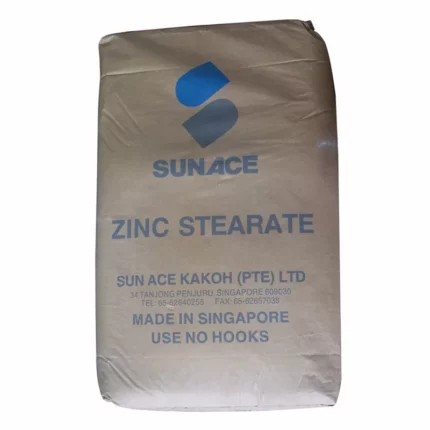
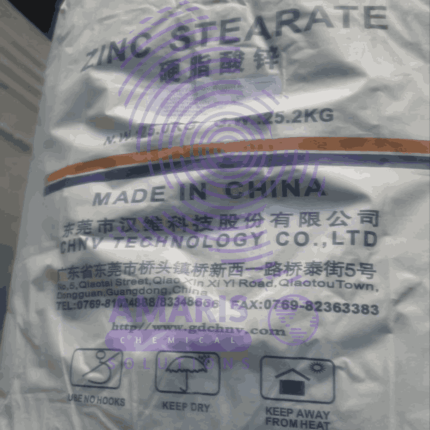
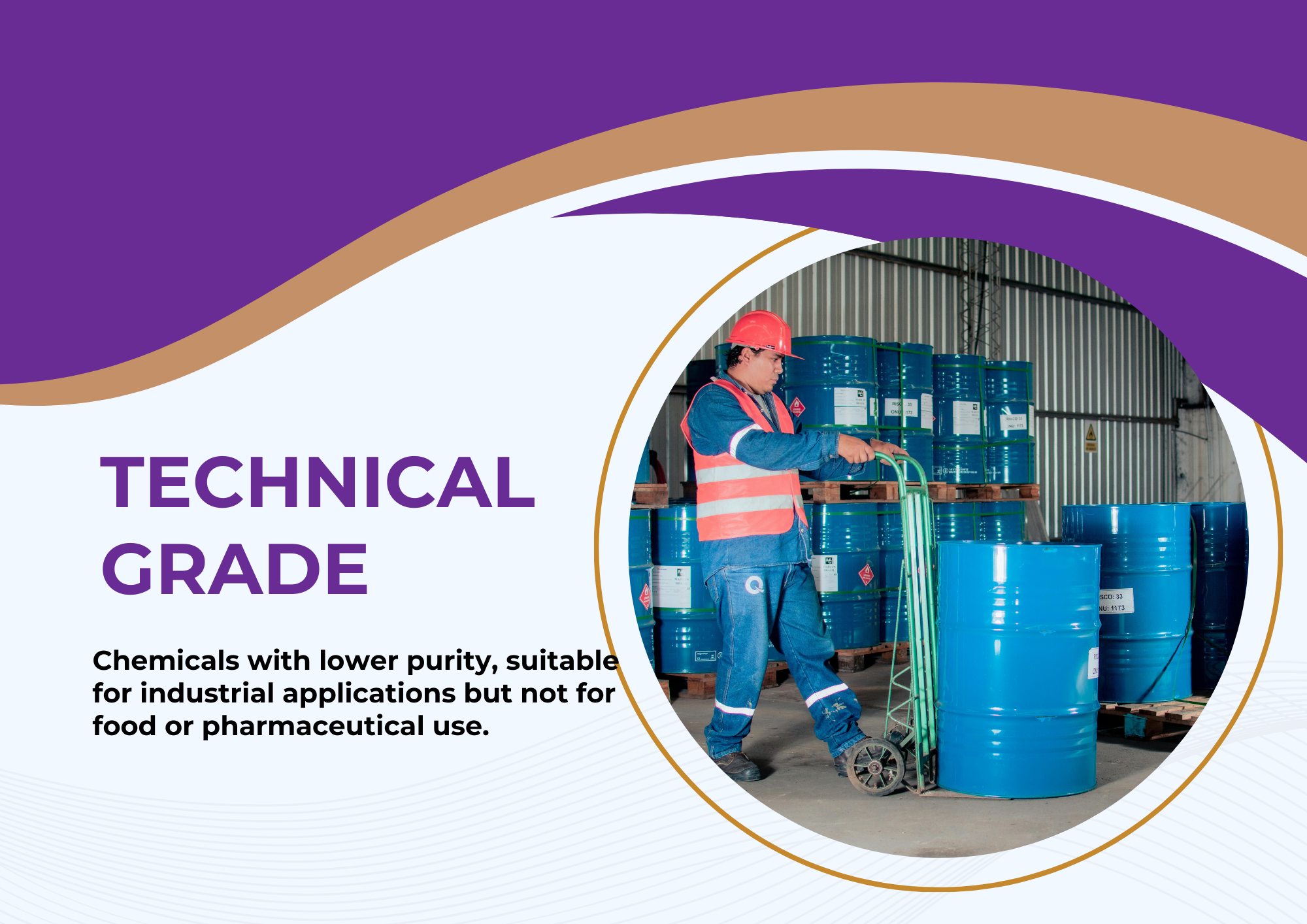



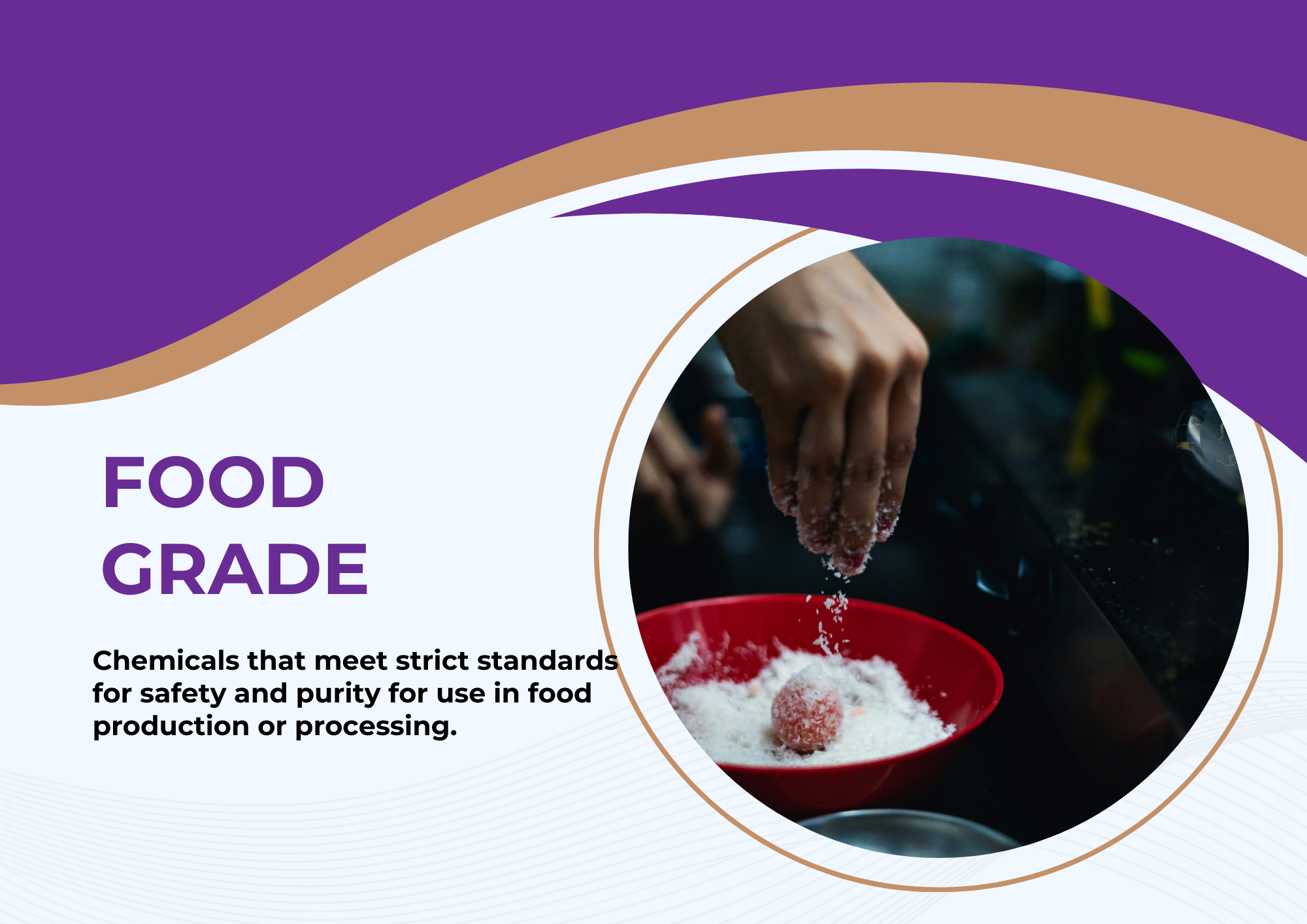

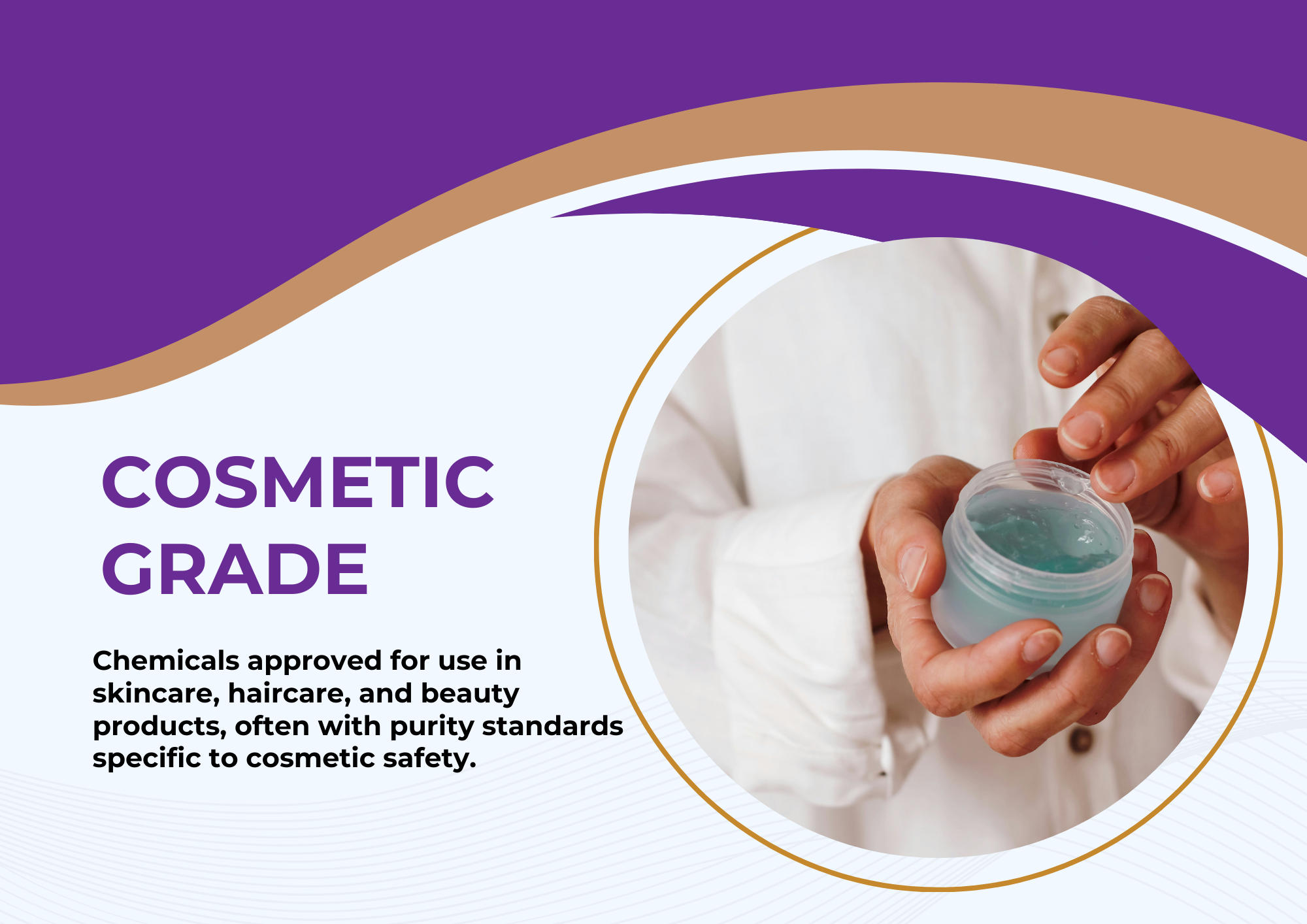
Reviews
There are no reviews yet.